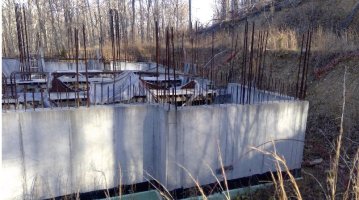Buelligan
REGISTERED
Ok folks got a question for you. The permit for the foundation in the below picture was started in 2004! We have had them complete small sections and portions every 6 months while also asking for extensions.
We have received another extension but have decided to reject this request and in addition have the foundation evaulated and a new permit applied for. This foundation has been at this point and exposed to the elements for at least 12-15 years.
Thoughts?

We have received another extension but have decided to reject this request and in addition have the foundation evaulated and a new permit applied for. This foundation has been at this point and exposed to the elements for at least 12-15 years.
Thoughts?

